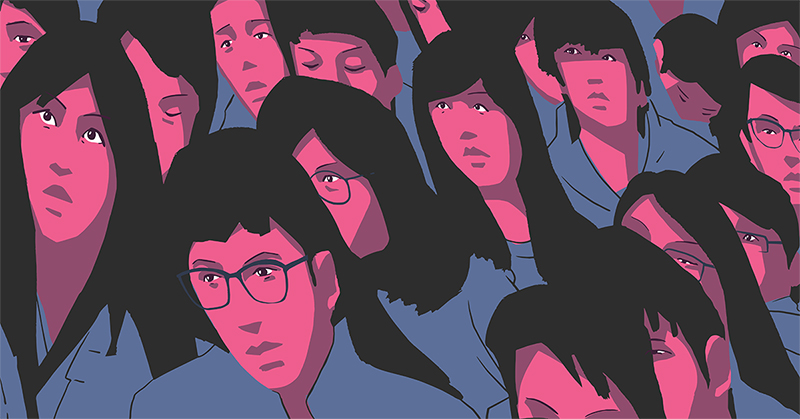
In his speech on May 18 to close the parliamentary debate on the President’s Address, Finance Minister Heng Swee Keat announced the launch of a series of conversations between the Government and Singaporeans from all walks of life.
In particular, Mr Heng said that this series of conversations would be led by the fourth generation (4G) leaders, of which he is one.
Mr Heng's announcement triggered memories of the seminal 2012-2013 “Our Singapore Conversation” (OSC), not least because he was the minister in charge of it.
It inevitably raised the question of whether we need yet another national-level dialogue session.
Sceptics will point to the fact that the OSC was held a mere five years ago, and that the OSC was itself preceded by public engagement exercises such as 1991’s “The Next Lap”, 1999's “Singapore 21”, and 2002's “Remaking Singapore”.
But before we disparage yet another national conversation, I want to argue that talk, far from being cheap, is actually an integral part of politics and nation-building.
Words – as they are used in daily conversations, policy debates, and grand national narratives – matter.
While we tend to define “politics” in terms of the different institutions of governance that loom large in our lives, we often lose sight of the fact that politics is an activity.
As citizens, our words represent our voice. Collectively, Singaporeans participate in politics by negotiating how power is exercised and who gets to exercise it.
And as the French historian Ernest Renan put it, the existence of a nation is a daily plebiscite that must be continually willed and spoken into being.
If the Government proceeds with a new series of engagements between the 4G leaders and citizens, it must take care not to jeopardise the legacy of the OSC.
It should instead build on the many positives that emerged from the OSC: the genuine openness for different perspectives to emerge, for different people to scrawl on a blank canvass, and to not merely tolerate but embrace dissensus and the messy, iterative manner in which Singaporeans told their stories.
The OSC, in contrast to previous engagement exercises, was designed with an exploratory “problem-setting” mindset as opposed to the more familiar “problem-solving” approach that the Government typically prefers, given its technocratic predilections.
The OSC proved to be extremely useful because it surfaced issues that the Government had been unaware of, whether it was due to genuine blindspots or a disconnect between those who govern and the governed.
It revealed anxieties over bread-and-butter issues such as jobs, education, public housing, cost of living and so forth, but it also gave vent to the myriad stories of us as a people in our irreducible diversity.
The OSC was also cathartic and rehabilitative.
Let’s also not forget the context for the OSC, launched in the wake of the landmark 2011 General Election that saw the incumbent People's Action Party bruised (relatively speaking) at the ballot box.
In the romance movie genre, the OSC was the “Honey, we need to talk” moment.
And the humility and open-mindedness with which the Government approached the OSC stemmed from conditions that were unique to a post-GE2011 Singapore.
Both the Government and citizens need to acknowledge that the context today is very different: a government that had been chastised at the polls is not the same as one that sees itself as having (re-)attained a degree of dominance.
Depending on the context, the kind of conversation that ends up being had can be very different.
A further challenge is that this prospective conversation will be launched in an environment of ever-intensifying contestation.
Also, having exercised their conversational muscles since the OSC, we can expect Singaporeans to be more sensitive (and vocally so) to exercises in token engagement and contrived consensus-building.
This must be a conversation in which the parties must agree that nothing is exempt from criticism and that not everything is defensible.
Conversations, in the normal sense of the word, are a good thing.
The stories we tell each other expand us, individually and collectively.
Storytelling opens up the vistas of new possibilities and provokes new interpretations of the world. Indeed, conversations and stories define an “us” in the first place.
Cultural anthropologists suggest that while stories help us to make sense of the world, the act of storytelling points to the existence of an antecedent community: there is the teller of the story, the cast of characters, and the listener who responds to it.
The conversations we have in our everyday lives are often incoherent and unplanned. They range from the profound to the mundane, and they sometimes trail off into mumbles or hurried good-byes.
But as long as the propensity to converse remains strong, then as a society I think we are in good shape. Because it means we can always pick up where we left off. Like friends.
Contrast that with the formal government-led, or at least government-facilitated, conversations like the OSC and the one announced by Mr Heng, that often feature bureaucratic contrivances such as sign-up sheets, facilitators, flip-charts and marker pens, the doodles and the graphic recordings, and the final infographic that shows how seamlessly the ideas cohere.
At some point, the Government may need to weigh the risk of fatigue for these kinds of conversations.